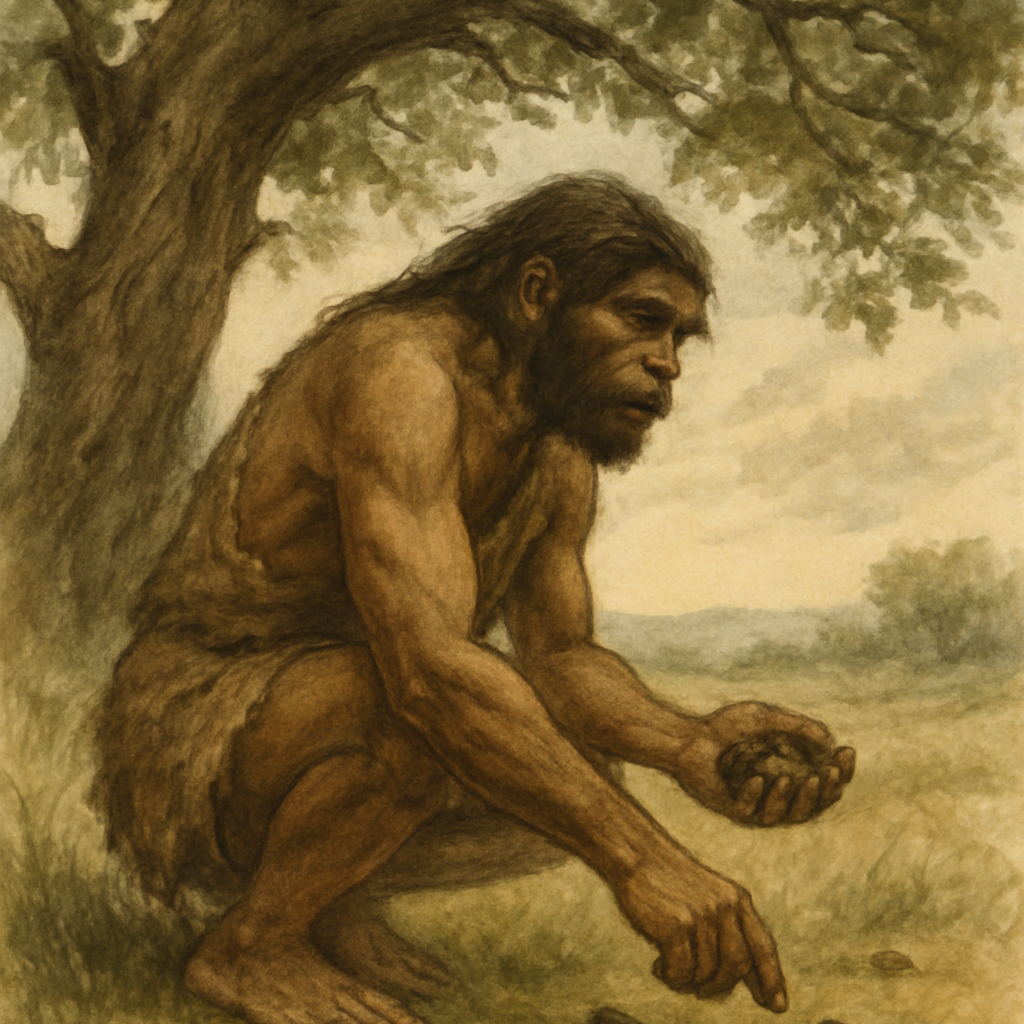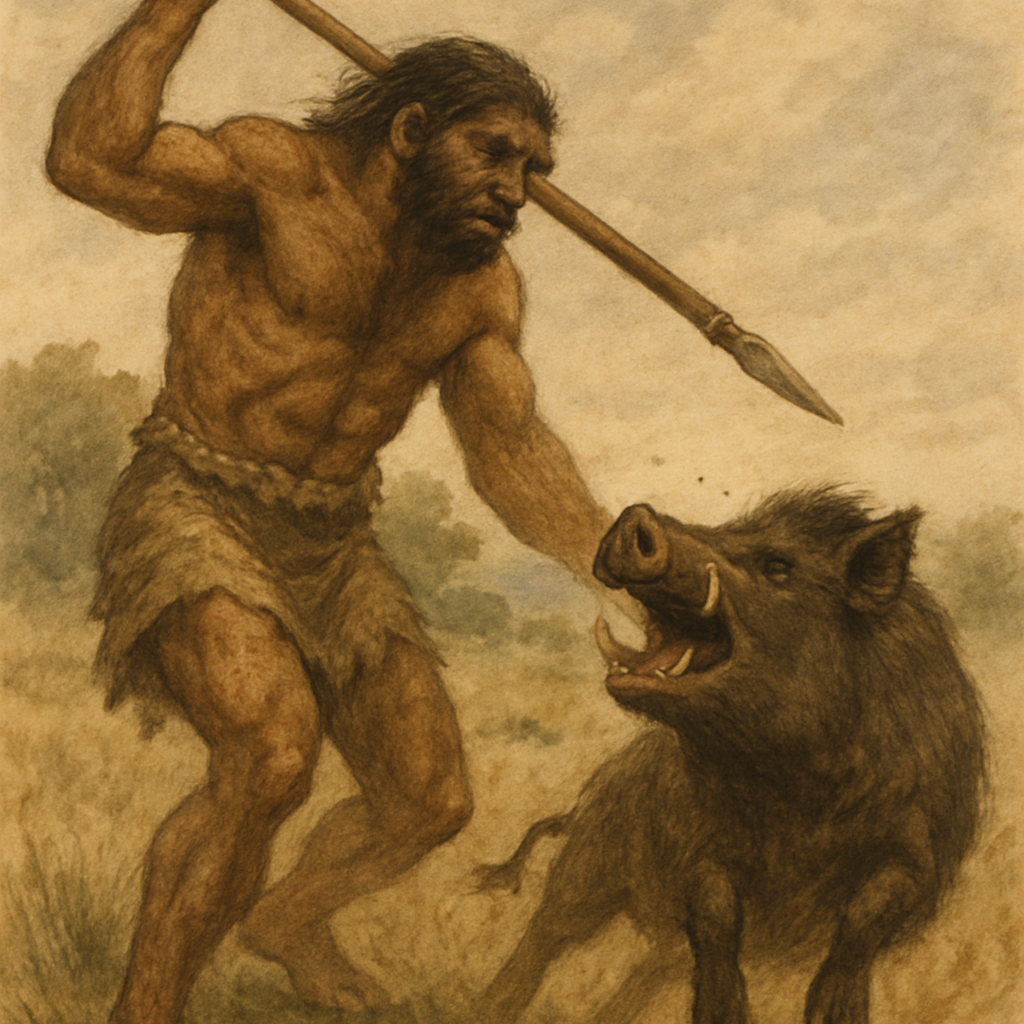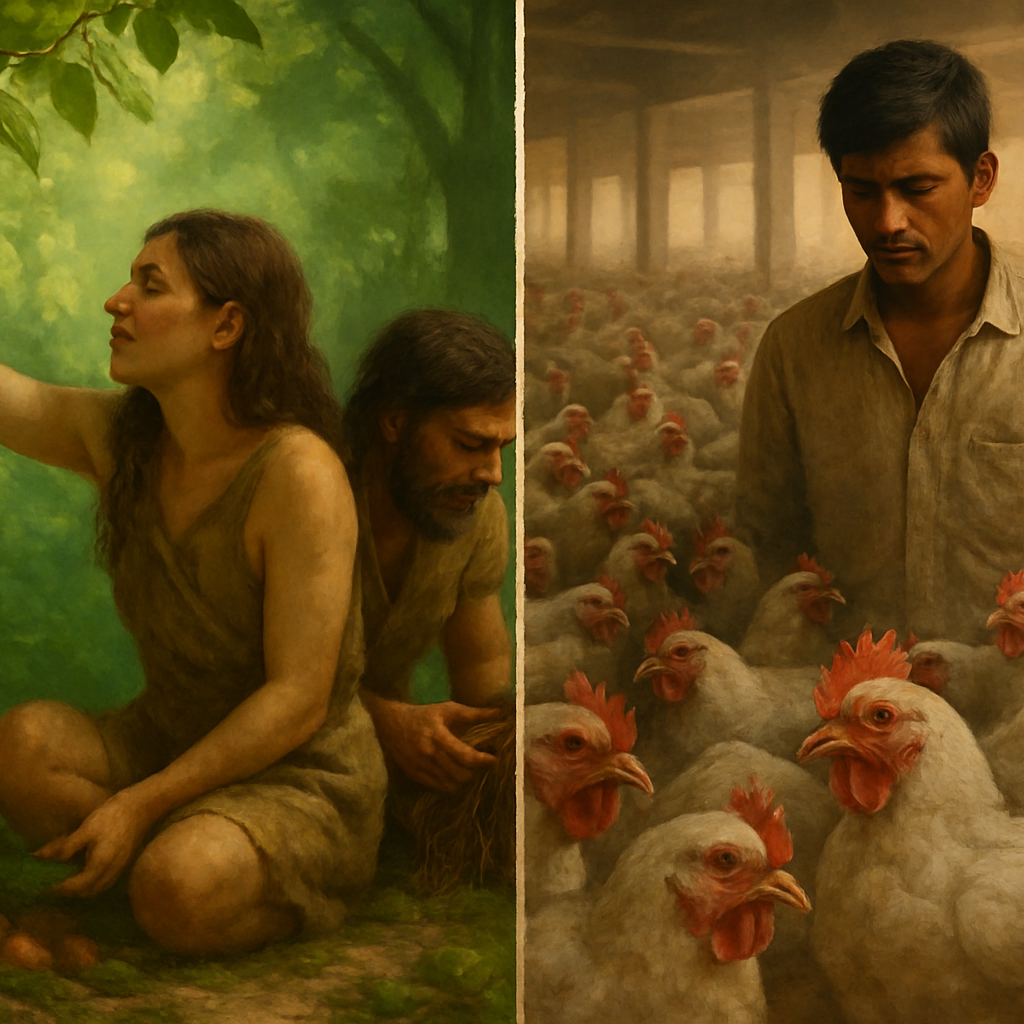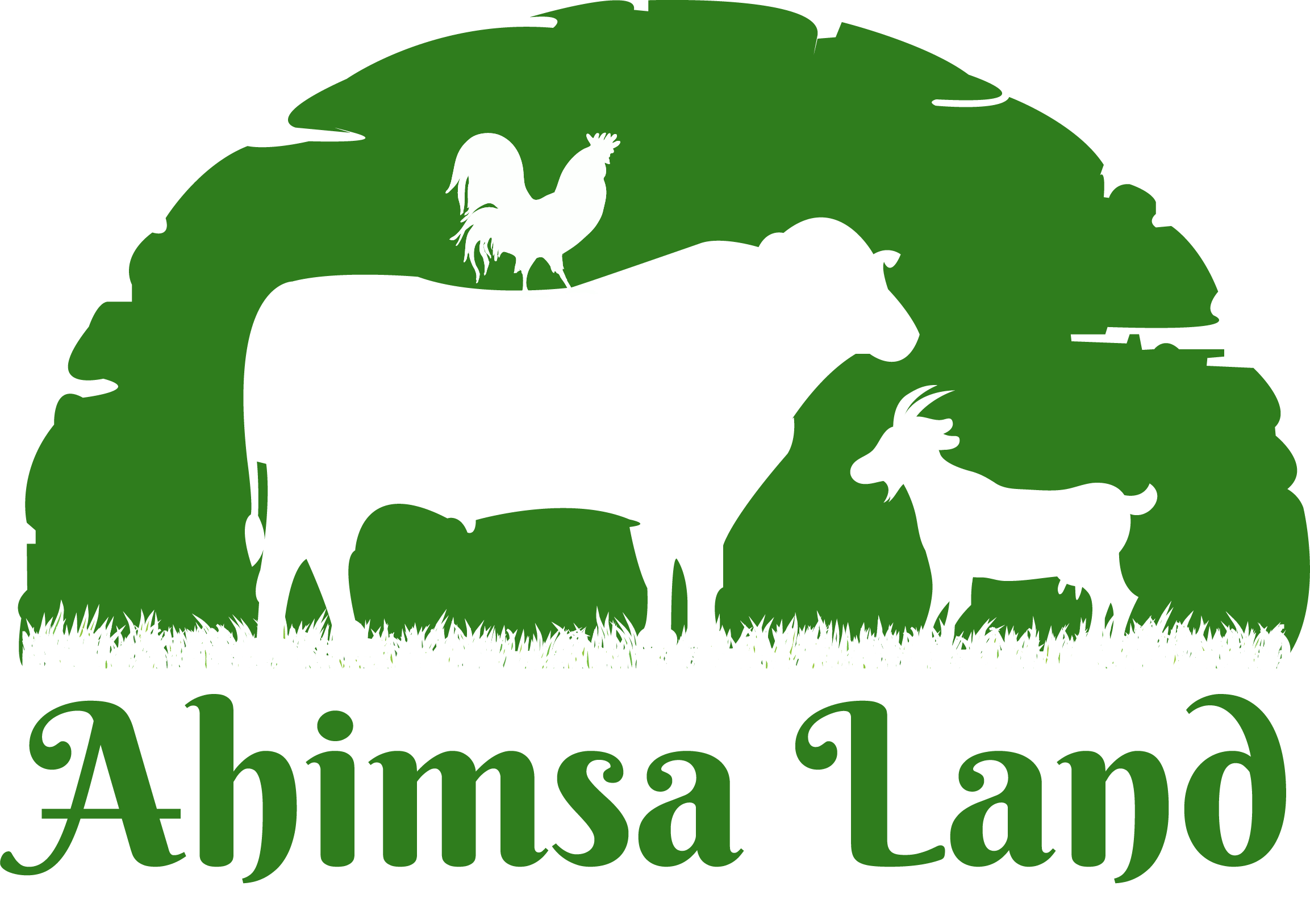A Peaceful Beginning

In the earliest chapters of human history, survival was simple and nonviolent. Without claws, fangs, or the speed to match natural predators, early humans lived in harmony with their environment. Using their hands, they gathered what nature freely offered: fruits, berries, leaves, and a few edible roots. For thousands of years, this ahimsak (nonviolent), plant-based diet was the foundation of human life.
The Turning Point: Curiosity About Flesh
One day, early humans witnessed something that would change the course of our relationship with food: animals eating other animals. Curious, they began to observe predators from a distance. After the predator had eaten its fill and moved on, humans would approach and scavenge the remains. This marked the beginning of a new, more violent chapter in human eating habits — one where flesh became part of the menu.
From Scavenging to Hunting

Over time, humans learned to fashion tools and weapons, which gave them the power to hunt rather than wait. The discovery of fire further transformed their diet, as they began to cook meat, making it easier to digest. As social structures developed and humans formed tribes, hunting became a communal activity, mostly carried out by men when time or whim allowed. Wild animals, however, were not easy targets. They were fast, alert, and well-adapted to detect danger. Many hunts ended in failure, and so whenever the hunters succeeded, it was a cause for celebration and the whole tribe would gather to share the meat.
The Rise of Domestication and Control
Eventually, in an effort to make meat more readily available, humans began capturing animals alive. They confined them in small spaces and allowed them to breed naturally. This made it easier to kill and eat them without the uncertainty of hunting. Even so, eating animals remained relatively infrequent. Artificial breeding methods did not exist, and feeding captive animals was difficult and resource intensive. But this shift from hunting wild animals to raising them for food marked a profound change in how humans related to the rest of the animal world.
It was the beginning of control. And that control set into motion a long, violent chain of events that have shaped the world we live in today.
Industrialization: From Desire to Industry

As civilizations grew and economies developed, humans started monetizing this control over animals. Their bodies became commodities. With the invention of money and the rise of commerce, the killing of animals for food transformed from an occasional activity into a regular, marketed habit. What once may have been a rare feast turned into almost a daily norm all driven by profit. With clever marketing and widespread normalization, people were brainwashed and manipulated into accepting the use and killing of animals not only as necessary but as natural and normal.
In modern times, this practice has exploded into a global industry: mechanized, industrialized, and entirely disconnected from the natural world. Animals are no longer seen as living beings but as products to be processed. The scale of suffering is staggering, and the environmental impact is undeniable.
A Shift Back Toward Compassion

Yet, something is changing again.
Especially over the past century, and accelerating in the last few decades, a growing number of people are starting to question this violent food system. They are reconnecting with their innate values of compassion, justice, and peace. People are looking beyond tradition and convenience to ask deeper questions: Is this necessary? Is it just? Is it kind?
And increasingly, the answer is ’no’, because we were never meant to dominate. We were meant to coexist.
More and more individuals are turning to plant-based living and returning to the diet that sustained early humans for millennia. Not out of scarcity, but by choice. A conscious, compassionate choice rooted in the belief that we can thrive without causing harm to others.
Choosing a Kinder Future
What began as curiosity about animals is now transforming into empathy for them.
Perhaps, in recognizing where we came from, and how far we’ve strayed, we can begin to chart a new path forward. One that honours life in all its forms. One that reconnects us with the peaceful origins of our species.
And perhaps the future lies not in continuing the cycle of violence, but in ending it.
✅ Call to Action (CTA):
Let’s Rethink the Path We’re On.
If this journey through time stirred something in you, you’re not alone. Millions are choosing a gentler path, a path that aligns with our core values of compassion, justice, and peace.
✨ Start by questioning what’s on your plate.
✨ Learn about the lives behind the products.
✨ And most importantly, listen to the voice inside you that says, “This doesn’t feel right.”
Because going back to our roots might just be the most forward-thinking thing we do.
🕊️ Ready to explore a kinder way of living? Start here by checking out our easy to follow Vegan Starter Kit or take your first step toward a kinder lifestyle with Challenge 22.
Read: The China Study – The most comprehensive study of nutrition ever conducted.
Understanding what a Whole-Food Plant-Based diet is can help you start you on your journey to health.
Watch Earthlings, a documentary that will open your eyes and your heart.
Watch Dr Melanie Joy’s Ted Talk titled Toward Rational Authentic Food Choices to understand how even otherwise kind people end up being part of the present dominant violent food system.
